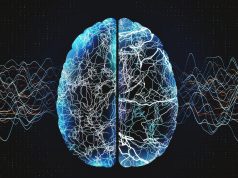No adverse outcome when hypoglycemia treated to maintain blood glucose concentration of ≥47 mg/dL
THURSDAY, Oct. 15, 2015 (HealthDay News) — Neonatal hypoglycemia seems not to be associated with adverse neurologic outcomes when the condition is treated to maintain a certain blood glucose concentration, according to a study published online Oct. 14 in the New England Journal of Medicine.
Christopher J.D. McKinlay, Ph.D., from the Liggins Institute in New Zealand, and colleagues conducted a prospective study involving 528 neonates with a gestational age of at least 35 weeks who were considered to be at risk for hypoglycemia. Patients were treated to maintain a blood glucose concentration of at least 47 mg/dL. Blood glucose was measured intermittently for up to seven days; interstitial glucose concentrations were monitored continuously and masked to clinical staff.
The researchers assessed 77 percent of eligible children. Of these, 53 percent had neonatal hypoglycemia (blood glucose concentration of less than 47 mg/dL). When treated to maintain a blood glucose concentration of at least 47 mg/dL, hypoglycemia was not associated with increased risk of the primary outcomes of neurosensory impairment (risk ratio, 0.95; 95 percent confidence interval, 0.75 to 1.2; P = 0.67) and processing difficulty (risk ratio, 0.92; 95 percent confidence interval, 0.56 to 1.51; P = 0.74). Children with unrecognized hypoglycemia did not have increased risks.
“In this cohort, neonatal hypoglycemia was not associated with an adverse neurologic outcome when treatment was provided to maintain a blood glucose concentration of at least 47 mg per deciliter,” the authors write.
Copyright © 2015 HealthDay. All rights reserved.








